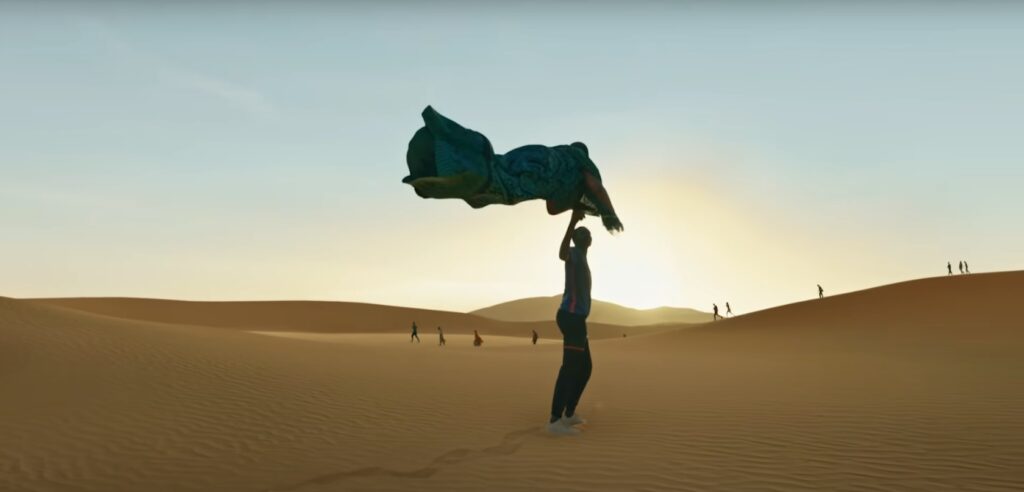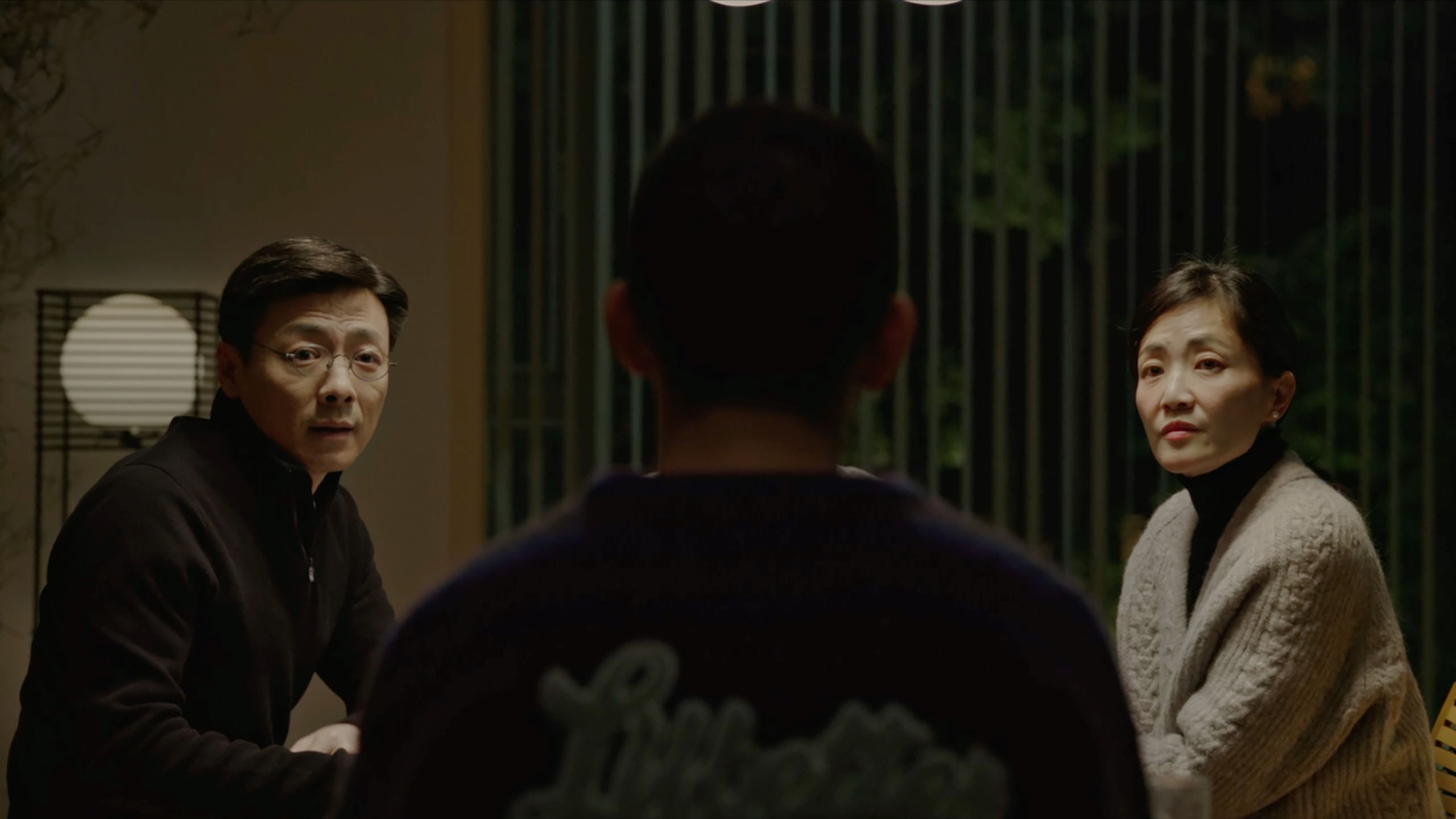Matteo Garrone rose to international prominence with his gritty Mafia thriller Gomorrah (2008), depicting Naples as a hellish war zone. His latest endeavor, Io Capitano earned him the Silver Lion for Best Director at Venice, is a scorching topical drama that provides a unique perspective on Italy, seen through the eyes of outsiders who perceive it as the beacon at the end of a dark and twisted tunnel. The narrative follows a young protagonist lured by the allure of Europe, abandoning the warmth of his domestic life and congenial community to embark on a journey that unveils the harsh reality that the grass on the other side is not always greener. The tale meticulously traces the migrants’ hardships and injustices, unfurling a merciless portrayal of what people inflict upon those they see as helpless. Through the lens of two Senegalese teenagers, the film exposes the punishing process of illegal migration, delving into the potential for displaced individuals to redefine themselves and revealing a condition of perpetual displacement that leaves an indelible mark on the viewer. The film’s treatment resonates with docudrama realism, reminiscent of Michael Winterbottom’s In This World (2002) which chronicles the journey of two Afghan migrants from Peshawar to London. Just as Winterbottom’s work brought the raw, unfiltered reality of migration to the forefront, Io Capitano too delves into the human experience, compelling us to confront the unfathomable choices and struggles faced by those navigating the treacherous path to a seemingly elusive destination.
The film unfolds on the outskirts of Dakar, Senegal’s vibrant capital, where Seydou resides at a small settlement with his widowed mother and sisters. He and his partner-in-crime, Moussa, have covertly toiled on construction sites for months, amassing funds for a daring expedition to Europe. Their aspirations extend beyond mere financial gain, envisioning a future where they ascend to hip-hop stardom, coveted to the point that even white admirers seek their autographs. One evening, Seydou confides in his mother about his decision to venture to Europe, driven by an intense desire to provide for her and his sisters. Her response is unwavering, a stern prohibition grounded in the harsh reality of lives lost during the perilous journey, especially on the treacherous Mediterranean boat crossings. Seydou hesitates to carry forward the plan but gets convinced by Moussa’s persuasive charm. After an uncanny encounter with a marabout and a pilgrimage to the cemetery seeking permission from the spirits of their departed ancestors, the two boys embark on their covert journey in the dead of night, armed with their hard-earned cash. However, as the journey unfolds, the stark realities they confront replace their youthful enthusiasm with stoic desensitization.

Io Capitano opens with Seydou being roused from slumber in his quaint settlement, disrupted by the lively commotion of his little sisters preparing for a celebration. Despite the snug quarters of the vibrant family home, a harmonious chaos prevails, tethered together by a tender thread of love woven among the family members. This setting poignantly contrasts with the protagonist’s imminent departure from the comfort of his homeland, resembling an unfortunate egress that unfolds into an unflinching human exploration of the challenges many migrants across the world face on their journey to Europe, all while nurturing dreams of crafting a better life. In this inferno odyssey, the narrative unfolds the staggering obstacles confronted by migrants and their remarkable resilience in overcoming them. As Seydou and Moussa traverse, their savings dwindle, and the modes of transportation progressively offer less ease and security. The first inkling of the perilous journey unfolds when a man tumbles off the flatbed truck, a cramped vessel hurtling recklessly through the desert. The callous nature of the traffickers becomes glaringly apparent – no pause to retrieve the fallen man. It dawns on Seydou that, perhaps, his mother’s warnings were not without merit after all. The grim actuality of the journey and the ruthlessness of those orchestrating it begin to cast a shadow on the once hopeful expedition. Later, Seydou finds himself thrust into an unused prison alongside hundreds of fellow migrants in the desolate Libyan town of Sabha—a starkly tangible place replete with torture chambers and chilling slave auctions. This prison is grimly real, with its torture chambers and slave auctions. Simultaneously, to counterbalance the grim and dark elements of the narrative, Garrone introduces two scenes filled with glimpses of magic realism. In one scene, Seydou endeavors to save the life of a woman whose bruised sole prevents her from walking, and in the other, he summons a witch doctor to convey his love to his mother within the realm of his dreams. Moreover, Garrone’s screenplay, co-crafted with Massimo Gaudioso, Massimo Ceccherini, and Andrea Tagliaferri, draws inspiration from real-life accounts of African migrants, elevating its emotional depth and resonance, and adding a touch of genuine essence to the storytelling.

Paolo Carnera‘s cinematography captures landscapes with sparkling clarity, illuminating graceful moments and contrasting them with predatory characters in stunning terrain. The camera, focused on humans in the arid expanse of the Sahara, skillfully balances wide shots and close-ups, creating a vivid and impactful visual narrative. Marco Spoletini‘s editing highlights the intrinsic hope woven throughout the narrative, even in its darkest moments. The use of dissolves to portray the passage of time instills a sense of continuity and resilience in the unfolding story, allowing the audience to witness the characters’ perseverance and enduring hope that transcends the challenges they face. Mirko Perri‘s sound design and Andrea Farri‘s background score achieve a seamless balance between the visual and auditory realms, delivering a haunting and immersive sonic experience to the audience.
Non-professional Seydou Sarr delivers an indelible and remarkably mature performance, carrying the entire movie alongside his cousin, Moustapha Fall. Displaying seasoned professionalism, he culminates in a heart-rending close-up that captures a tumultuous blend of conflicting emotions. Seydou, with his unassuming and gentle demeanor, unveils a surprisingly steely strength and resourcefulness. This transformative revelation injects a sense of agency as he is suddenly thrust into the role of not just caring for himself and Moussa but shouldering the lives of hundreds. It sears away his childish innocence, unfolding as an adventure with moments of gut-churning horror, interwoven with pockets of ravishing beauty and grace. The ancestral permission Seydou sought becomes a source of strength, guiding him through a gauntlet of trials on the path to self-realization and manhood. Deservingly, he won the Marcello Mastroianni Award for Best Young Actor at the Venice Film Festival in 2023.
Io Capitano has secured a nomination in the category of Best International Feature Film at this year’s Academy Awards. It stands as a formidable contender, captivating audiences with its compelling narrative, exceptional performances, and nuanced exploration of the human experience. I hope the jury members share a similar perspective.




